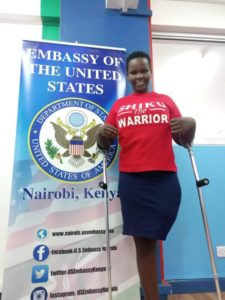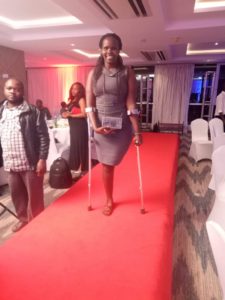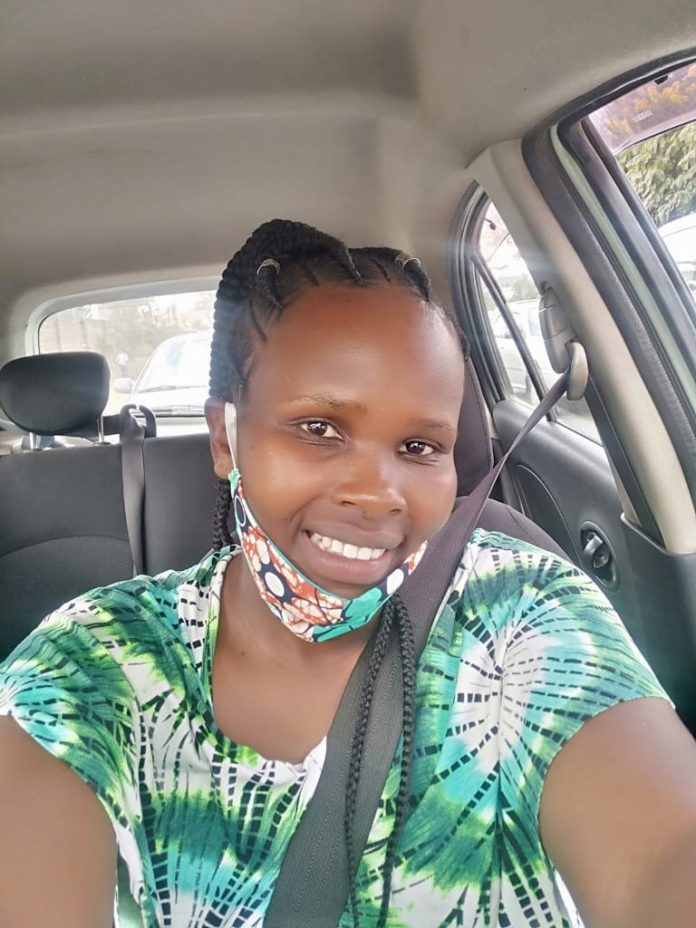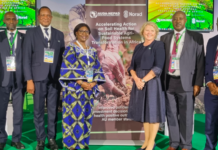Nairobi, Kenya: While constant news about the COVID-19 can be worrying for healthy individuals, cancer patients in Kenya face the extra burden of fear and anxiety. Cancer Survivor shares her heart of Gold story and how she is coping during these tough times.
Ruth Wanjiku, 23 or ‘Shiku the Warrior’ as her friends know her, is a Stage 4 cancer survivor, and a driver with the cab-hailing app, Uber. Wanjiku lost her leg and her right lung to the disease.
She was only 16 when she was diagnosed with osteosarcoma, a type of bone cancer. Doctors told her she had less than a month to live. After the shock diagnosis, the doctor suggested the amputation of her right leg.
 Two years later she went back for a check-up, only to get life-altering news. Cancer had spread to her lungs. After medication and removal of her right lung, Wanjiku was told that cancer had gone into remission in 2019.
Two years later she went back for a check-up, only to get life-altering news. Cancer had spread to her lungs. After medication and removal of her right lung, Wanjiku was told that cancer had gone into remission in 2019.
“The doctors gave me 25 days to live, but here I am, two years later,” Wanjiku was grateful for the new lease of life, and then COVID-19 happened.
When the disease broke out, she was terrified as chemotherapy treatment can make one immunosuppressed – and thus more vulnerable to the disease. “I could not go out for days. I had to avoid crowds,” she explains.
Her Uber business has taken a beating with reduced demand as people stay at home.
“Before this, on a good day, I would make between30 USD to 50 USD. But with most people limiting their movements, I am lucky to even make half of that,” says Wanjiku.
Through her own cancer experience, Wajiku wants to help. “I have fought cancer twice. The thing that gives me hope and strength is my deep desire to help others,” she says.
She drives cancer patients in her Uber for chemotherapy sessions at no cost. “I pick them up from their houses and take them to Kenyatta National Hospital or Texas Cancer Centre,” she adds.
 Wanjiku wants to make every day count. “People who don’t have cancer can never understand what we go through. I sometimes use money from my Uber job to buy food and donate it to cancer patients. It gives me a purpose in life. I don’t give because I have much, but because I know how it feels to lack,” she says.
Wanjiku wants to make every day count. “People who don’t have cancer can never understand what we go through. I sometimes use money from my Uber job to buy food and donate it to cancer patients. It gives me a purpose in life. I don’t give because I have much, but because I know how it feels to lack,” she says.
However, after learning that she has one leg, she says some passengers just cancel the rides. “I am forced to hide my crutches in the car trunk. Some just stare at my stump, while others are just downright rude.”
Wanjiku has started a support group where she gives food donations to cancer patients and visits them in their homes. Because of canceled jobs, limited mobility, and reduced income, many patients in her support group are going to bed hungry. She gets most of her food donations from friends.
“Last week I drove all the way to Maralal to talk to a newly diagnosed cancer patient and give them hope. I carried maize flour for them, we laughed and cried together,” she says.
She also runs a feeding program every Tuesday for street children, cooking food from her house. But due to the pandemic, she now just gives them loaves of bread to share among themselves.
“I was not even aware that there is a weekly stipend from the government for persons with chronic illnesses,” adds Wanjiku. Her greatest wish is to get a proper prosthetic leg so that she can move around with ease.
This story was done with support from the Baraza Media lab Micro Okoa grant.














